Donovan - Interview
by Lisa Torem
published: 3 / 10 / 2013
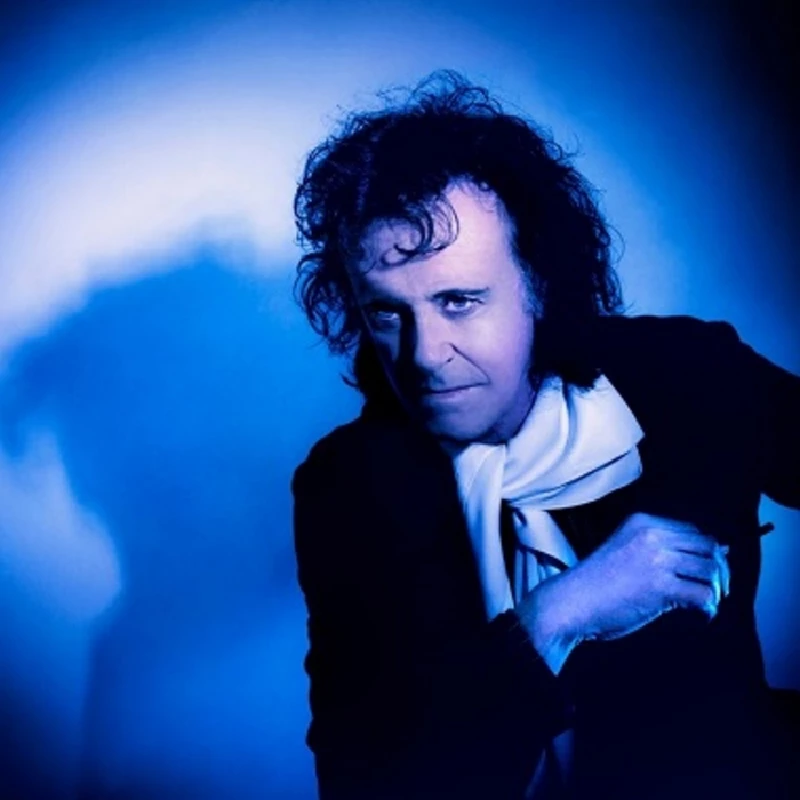
intro
Lisa Torem talks to Donovan about the forthcoming second volume of his autobiography which will be coming out as an audio book and his new album 'Shadows of Blue', which was recorded in Nashville
“I never forgot Nashville and I knew I would go back to Nashville with a set of songs I have kept in my back jeans pocket,” explained Donovan about his exciting return to the country music capital to record ‘Shadows of Blue’, which includes original confessional and anecdotal ballads, delicate and saloon hall vocals and a host of Americana-spiked arrangements with legendary Nashville session musicians. Peer Music discovered the acclaimed Glasgow-born singer-songwriter in London in 1964. A year later, he recorded his first single, 1965’s ‘Catch the Wind’ (Hickory Records), which climbed to Number Three on the Pop Charts, and prompted Flatts and Scruggs and Chet Atkins to create their own cover versions. Working actively with Peer Music on ‘Shadows of Blue’ sounds like it has been a dream come true for Donovan because, as he discussed in his second Pennyblackmusic interview, he really never has forgotten his country roots despite exploring psychedelia, electric rock and folk. Donovan’s career includes thirteen Top 40 hits. Over three hundred artists have covered his eclectic work. He has not only written over five hundred songs, but he greatly influenced the Beatles. On ‘Dear Prudence’, ‘While My Guitar Gently Weeps’ and ‘Blackbird’, the acoustic guitar drifts into the touching finger style technique Donovan passed on to John Lennon, Paul McCartney and George Harrison. Donovan has also been busy creating the audio book of the second part of his autobiography, which focuses on the 70’s. Who better to narrate the hills and valleys of his youthful road trips, sudden and soaring success and vigilant soul searching than the man himself? Whilst Donovan told us in his first Pennyblackmusic interview about how his father’s nightly poetry readings influenced his expressive use of language, and best friend Gypsy Dave reminded us in September, that Donovan had a remarkable memory, it is Donovan’s singular and expressive voice and his colourful use of details on this thirteen instalment series that brings home his life force. Donovan brought us up to speed on the making of his long-awaited album, his humanitarian concerns and why his marriage is everlasting. PB: Donovan, this year you returned to Nashville to record ‘Shadows of Blue’ at Treasure Isles Studios. In 1965, after you released ‘Catch the Wind’ in Nashville, your original song, which got covered by country stars Buck Owens, Chet Atkins and Flatt and Scruggs. Many people think of ‘Catch the Wind’ as a folk anthem. Did those recordings surprise you? D: There was no surprise as so many folk/country artists recorded the song; the history of popular music comes from folk (huge Irish Scots influence with African fusions), which creates country music, which creates rock and roll. PB: Peer Records had also recorded the Carter Family. Maybelle Carter was one of the musicians who inspired your unique finger style approach to guitar playing. Which Carter songs inspired you? D: ‘Wild Wood Flower’ is a favourite and all the finger style songs, of course. PB: Guitarist Adam Shoenfeld and keyboardist Tony Harrell had worked together on four Jason Aldean albums on Broken Bow Records, and Nashville-born producer Michael Knox had worked on five Aldean albums in a row. You then worked with all of them on ‘Shadows of Blue’. As they were already a close-knit group, did you feel welcomed? D: I was welcomed most warmly, and when I played them the songs their smiles beamed. They knew what I was there to do. PB: Many of the earlier songs that you had written about female subjects - ‘Jennifer Juniper’, ‘Lalena’ and ‘Guinevere’- were all performed in a very delicate manner. ‘Blue Jean Angel’ sounds like a tougher character and is a “dark eyed” dancer with a “roving eye.” Has your approach to writing about women changed? D: There are tough girls in my songs, but they are not the most well-known songs. On ‘Cosmic Wheels’, there is ‘Wild Witch Lady’. You don’t get a much tougher gal than her. ‘Blue Jean Lady’ is a gentle woman, but the music brings her out and she was waiting on the day to get away. PB: Several of your original ballads recall the simplicity and innocence of the great American Songbook: ‘To Love You’ has a heartfelt and honest message that might make one think of Cole Porter’s ‘True Love’ or Hoagy Carmichael’s ‘The Nearness of You’. Were you brought up with such material? Why did you record these songs now? D: I absorbed all the classic love songs of the twentieth century - folk, blues and jazz. ‘To Love You’ pays homage to the great song makers…but it is for me a “nod” to the wonderful studio recordings of so many. I recorded these songs because of this… After the Rock and Roll Hall of Fame Induction in 2012, many thought I would head out on a long tour but a voice inside said, “Remember the songs you have kept for to return to where you began?”...and I went straight to an old cassette from early 70’a and there they were…lost love laments and Celtic cowboy dance tunes, deep sacred sounding ballads like Elvis recorded and hot Southern country rock road anthems. I listened to the old cassette acoustic demos, and knew I was headed for Nashville. I also became aware I was tracing back down the history of popular music and also my own journey. The history begins in Ireland and Scotland when millions of immigrants fled to America. They fled poverty and oppression, and found more suffering and hard times. They arrived on coffin ships, and mixed with the African slaves. Irish Scots were slaves, too, though they were called indentured servants. Out of the folk songs came country music, and out of country came rock and roll. I wrote three more songs to add to the seven I already had, and now you hear ‘Shadows of Blue’. PB: Through Mike Johnson on pedal, Wanda Vick) on fiddle, Tony Harrell on accordion and B3 and John Sebastian on harmonica, the players in ‘Shadows of Blue’ waltz us through several musical eras. How did those arrangements come about? D: I knew the sounds that would be needed, and my solo acoustic vocal I sang to the two bandleaders. Tony and Adam suggested the arrangement, but Tony Harrell came up with the amazing piano parts in homage to Floyd Kramer and I gave Adam style ideas but he blew me away with his innovative and vintage fusion sounds. I would drop in parts that I knew would work, and all the players were masters at playing ‘for the song’, and Nashville is famous for this. The choice of what bass sound for the various musical eras was important too. The players knew what I was up to, and they knew it’s not all Old Timey or Folky; it’s a Donovan album, so it is a fusion, always. PB: Here are some lyrics from ‘Rock and Roll Gypsy’ – “I’ve been the wanderer since I left my home/The fool in jeans/The highway to roam/Guitar on my back and a head full of dreams." What’s the best memory from your vagabond days? Was this inspired by Gypsy Dave? D: This is, of course, autobiographical, but it’s really for all the Road Warriors who have travelled the highways bringing music to the people and Gypsy Dave inspired the title, of course. We had some mad and wonderful wandering, and not all the big events were the most amazing. Even the smallest little town can be the most rewarding, and it is also true that songs are written on the road. PB: This year, you have also recorded the second section of your autobiography. Interestingly, you recommend that the listener synch up each of your thirteen spoken word instalments with a specific album from the same period. The first instalment ‘Brother Sun Sister Moon’ is loaded with details and observations taken from your journals. You talk about writing a film score in Italy, missing your muse Linda and watching helplessly as a woman falls to her death – “She hit the roof of the parked car without a sound.” Did retelling the stories so many years later rekindle a lot of feelings? What was the most rewarding or challenging part of this project? How long did it take to come up with such vivid descriptions? D: I wrote the 70’s part when I wrote the 60’s (which was released in 2005 as ‘The Hurdy Gurdy Man’-Ed), and the manuscript has been in progress since 1971 when I wrote down the events to keep them fresh in recall. Then I rekindled the feelings of certain times by playing my songs of that time. There in the songs was all I was feeling, so my journey is in song as I travel along. PB: You mention on your website that “Donovan’s 70’s albums were at the time misunderstood.” What did you mean by that? D: I sang in these albums of subjects long before they were fully absorbed and accepted and sung by others. For instance, ‘HMS Donovan’ which was for new children of my generation to keep imagination alive and ‘Slow Down World’ album, which sang of ecology and the need to get aware of the poisoning of the Earth. PB: ‘Hotel Lonely’ was written for Linda. In the instalment, you mention that many of your peers (other musicians) experienced “casualties” in their relationships. On the other hand, you speak glowingly of your own relationship – “our tiny home was warm as toast” and “Linda and I dreamed the same dreams sometimes.” Her mother, Violet, even added, “Linda was finally reunited with her true love…” Why do you think you relationship flourished despite the pressures of the music industry? D: I met Linda in early 1965 before my fame exploded. She had been the first musician girlfriend to be hounded by the press, as she was the true love and almost wife of Brian Jones, founder of the Rolling Stones and the first charismatic music star of Britain. Linda and Brian were breaking up, yet she knew she loved me, but she needed time to grow up. She was eighteen with Brian’s baby boy and not wanting more of the Fame Game stress. Linda and I were seeing each other through 1965, but she needed time. We split for the first four years of my rising crazy super fame. This, I feel, saved us as we met again at the end of the 60’s and married. We had avoided the reasons why our friends in the same fame had not survived as couples. Our song says it best: “It’ll take time I know it, but in a while/You’re gonna be mine/I know it/We’ll do it in style.” ‘Sunshine Superman’ 1965 PB: You were one of the first “green” musicians. You say that you opened the door for other singer-songwriters to write about environmental concerns and animal rights. What has been your involvement with these issues? Has our society progressed? D: As I mentioned earlier, and you do so here, I did open the green door first, it seems. From the very early ‘Celia of the Seals’ and up through my 70’s albums I voiced the concerns and pointed to the horror of the careless treatment of the planet and our Ecosystem. At first I met with Peter Scott of The World Wildlife Fund in the 60’s, then Greenpeace and Friends of the Earth in the 70’s. It has been clear that I encouraged the amazing workers in these campaigns when they most needed it. Soon after this, many groups were formed and eventually Governments had to take heed as they saw the media exposure of their blatant shunning of their responsibility for the future health of the planet and their own future grandchildren. Often I am asked, "Did it work?" What must be seen is that once there was no dialogue, now there is on governmental levels. This is a success of the few who voiced the concerns and me who sang Green songs before anyone else. Now the information is accepted as real. It is up to the world’s peoples to take action and stop the madness. Save the Earth. PB: What were you thinking about when you were inducted into the Rock and Roll Hall of Fame last April? D: It was a singular honour and I welcomed it. I accept awards as they focus a strong beam on my work, a work which has always been a mission to open doors of perception and grow awareness of the Unity of Everyone and Everything – and not forgetting to have fun, too! PB: Do you have any touring plans to share with us? D: My 50th summer in music comes around in 2015 and plans are growing. Watch our site: www.donovan.ie PB: Final question: Imagine that whilst travelling in a sophisticated time travel capsule, you are able to meet up with dozens of unique characters from across history. Your captain has suggested that you bring up to six of them home with you for a dinner party. Which characters would you invite to your home and what would you serve for dinner? D: Pericles, Jane Austen, Lao Tzu, Buddy Holly, Leonardo Da Vinci, and William Butler Yeats. For dinner I would serve macrobiotic brown rice, vegetables, Miso paste, Sesame paste, all green leaf salad, my Linda’s dressing, apple pie and Greek yogurt, natural mineral water. PB: Thank you.
Band Links:-
http://www.donovan.ie/en/https://www.facebook.com/DonovanOfficial
https://twitter.com/donovanofficial
Picture Gallery:-
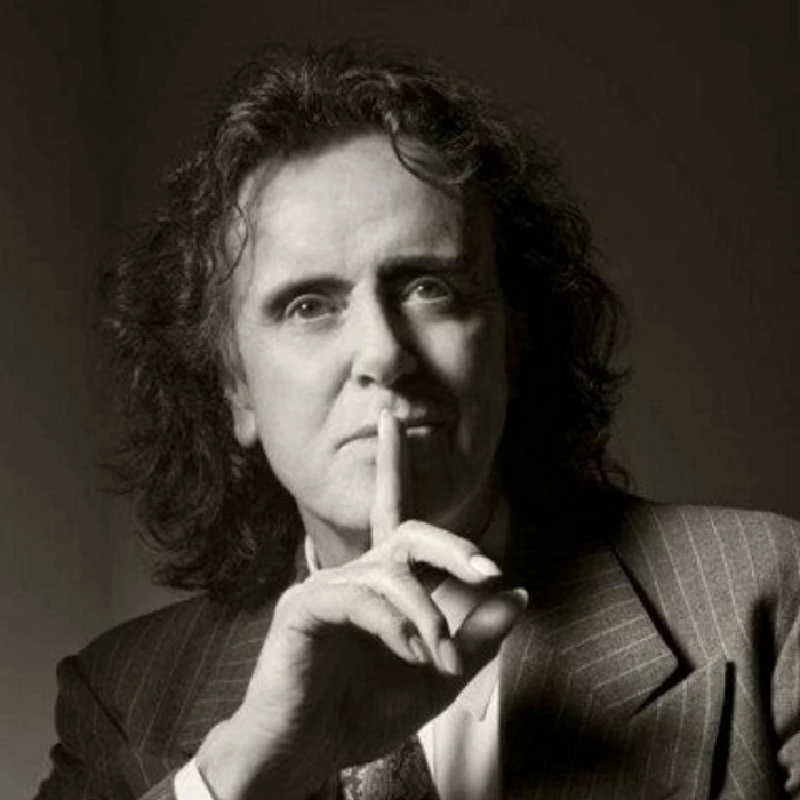

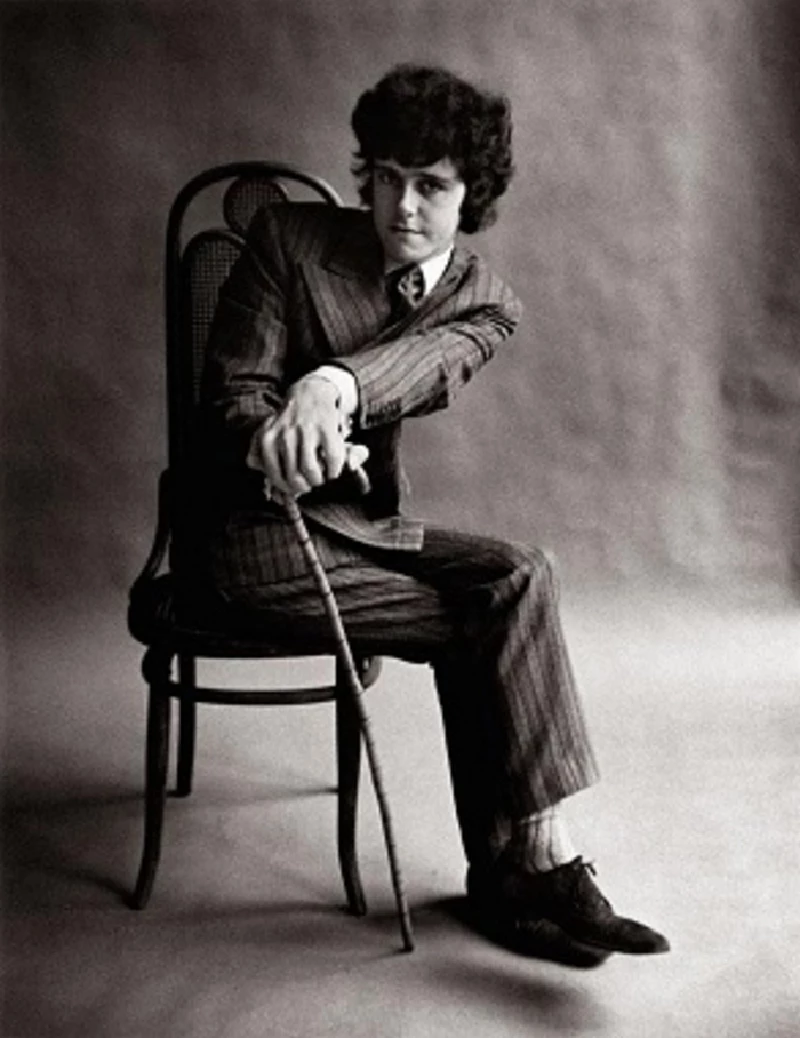
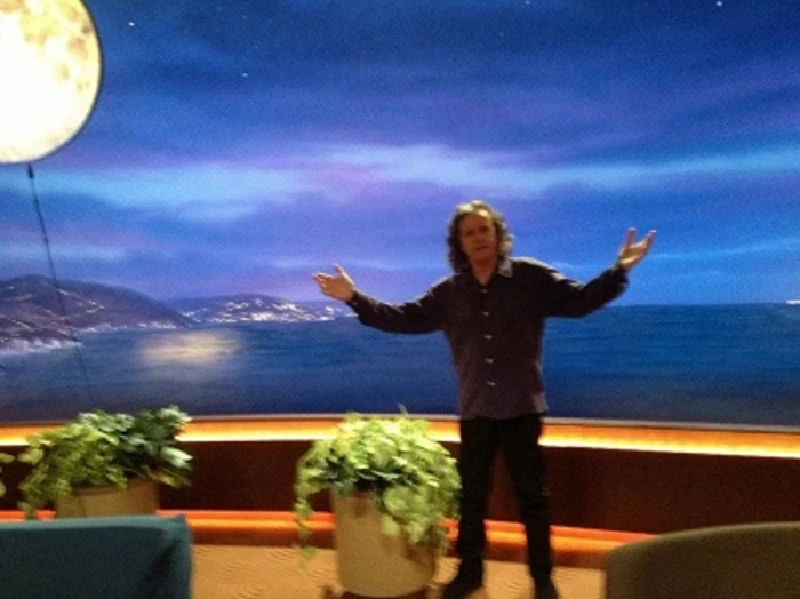
interviews |
|
Interview (2015) |
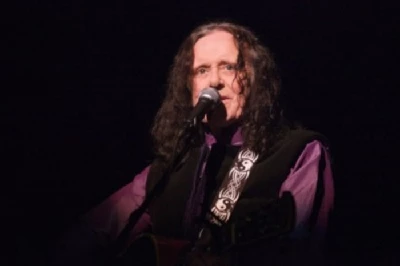
|
| Nick Dent-Robinson speaks to singer-songwriter and folk artist Donovan before a show in Oxford about his fiftieth anniversary tour and his continued love of music |
| Interview (2011) |
features |
|
In the 1960's (2022) |
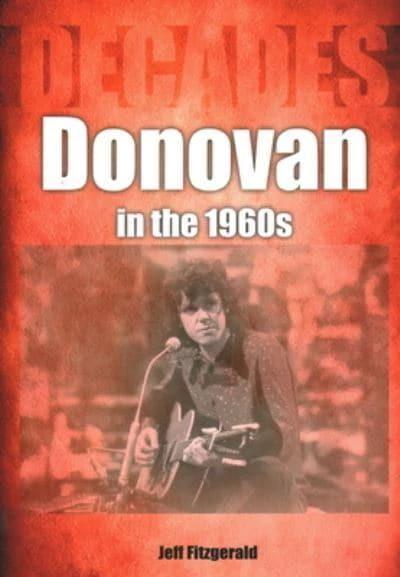
|
| Lisa Torem finds Jeff Fitzgerald’s new book about Donovan’s work in the 1960s an enjoyable read. |
| Ten Songs That Made Me Love... (2016) |
most viewed articles
current edition
Peter Doherty - Blackheath Halls, Blackheath and Palace Halls, Watford, 18/3/2025 and 21/3/2025Armory Show - Interview with Richard Jobson
Liz Mitchell - Interview
Lauren Mayberry - Photoscapes
Deb Googe and Cara Tivey - Interview
Max Bianco and the BlueHearts - Troubadour, London, 29/3/2025
Garfunkel and Garfunkel Jr. - Interview
Sukie Smith - Interview
Clive Langer - Interview
Maarten Schiethart - Vinyl Stories
previous editions
Heavenly - P.U.N.K. Girl EPBoomtown Rats - Ten Songs That Made Me Love....
Trudie Myerscough-Harris - Interview
Doris Brendel - Interview
Beautiful South - Ten Songs That Made Me Love...
Dwina Gibb - Interview
Pulp - Ten Songs That Made Me Love...
Kay Russell - Interview with Kay Russell
Oasis - Oasis, Earl's Court, London, 1995
Sound - Interview with Bi Marshall Part 1
most viewed reviews
current edition
Davey Woodward - Mumbo in the JumboNigel Stonier - Wolf Notes
Wings - Venus and Mars
Kate Daisy Grant and Nick Pynn - Songs For The Trees
Only Child - Holy Ghosts
Neil Campbell - The Turnaround
Philip Jeays - Victoria
Darkness - Dreams On Toast
Suzanne Vega - Flying With Angels
Charles Ellsworth - Cosmic Cannon Fodder
Pennyblackmusic Regular Contributors
Adrian Janes
Amanda J. Window
Andrew Twambley
Anthony Dhanendran
Benjamin Howarth
Cila Warncke
Daniel Cressey
Darren Aston
Dastardly
Dave Goodwin
Denzil Watson
Dominic B. Simpson
Eoghan Lyng
Fiona Hutchings
Harry Sherriff
Helen Tipping
Jamie Rowland
John Clarkson
Julie Cruickshank
Kimberly Bright
Lisa Torem
Maarten Schiethart